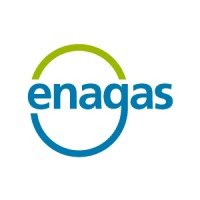Modern Electron, the Tulalip Tribes, and Qualco Energy to produce biogas based hydrogen
Outside of the transportation sector, almost half of our energy in the USA comes from natural gas.

The Clean Energy Fund of the Washington State Department of Commerce has funded Qualco Energy to deploy a hydrogen generation solution from Modern Electron.
The Qualco Energy renewable biogas project in Snohomish County leverages Modern Electron’s cost-efficient and environmentally friendly method for producing clean hydrogen with no CO2 emissions. The clean hydrogen produced by Modern Electron will be utilized for power generation that delivers electricity to a local community of 300 homes.
Qualco Energy, a partnership of the Tulalip Tribes, Northwest Chinook Recovery and the Werkhoven Dairy, will deploy Modern Electron’s novel natural gas pyrolysis technology to produce clean hydrogen. Modern Electron’s technology uses renewable biogas as the methane feedstock delivers hydrogen and high-value carbon credits from verifiable carbon sequestration.
The biogas is collected from a dairy anaerobic digester operation. By using the cow manure in a digester instead of applying it directly to farm fields, Qualco helps prevent the cow manure from being washed into streams and rivers during flood events and helps the dairy use the nutrients in the manure more efficiently. The biogas from the project is also used to generate electricity used by the Snohomish County Public Utility District Number 1.
Dr Amit Goyal, Director of Technology at Modern Electron, said, “Our innovative process uses renewable biogas to produce hydrogen and sequesters solid carbon at the same time. This new technique yields net negative emissions with significant environmental benefits without the high cost of CO2 capture. We can also directly weigh the solid carbon we pull out from the biogas, and every kilogram of solid carbon we put into the ground directly translates to verifiable emissions captured and avoided.”
For decarbonization, the demand for clean hydrogen is rapidly increasing from commercial buildings, industrial manufacturing, offices, hotels, food processing, power generation, transportation, schools, and government facilities. Modern Electron’s solutions produce clean hydrogen onsite, where the hydrogen can be used immediately, without traditional hydrogen transportation and storage logistics.
Max Mankin, CTO of Modern Electron, said, “Removing CO2 emissions from natural gas use would be revolutionary towards combating climate change, without compromising affordability and energy security. I’m thrilled to partner with Qualco Energy and the Tulalip Tribes to lower CO2 emissions and provide affordable energy as an early step on the way to that goal.”
Modern Electron’s solutions produce hydrogen from biogas and natural gas, both domestic fuels that are readily available and have resilient delivery systems. This approach to reducing CO2 emissions leverages the USA’s vast natural gas network. Combined with Modern Electron technology, existing gas distribution infrastructure is ready to enable wide-scale reductions in CO2 emissions. This existing pipeline capacity will also help electric grid resiliency by enabling distributed power generation with clean hydrogen.
Tony Pan, CEO of Modern Electron, commented, “Decarbonization solutions that can reuse gas infrastructure will save the world of trillions of dollars of infrastructure overhauls, and speed up reaching net zero by decades.”
Modern Electron and Qualco Energy’s project directly supports the goals of the State of Washington for the deployment of clean energy technologies that save energy, reduce costs, and eliminate harmful emissions. The project also addresses the inclusion of vulnerable populations and tribal communities, increasing the state’s energy independence and using renewable, carbon-neutral biogas.
The pilot plant will be implemented at a bio digestor site operated by Qualco Energy located at a dairy farm in Monroe, Washington. An environmental consultant from the Tulalip Tribes will provide guidance and report on the net environmental impact of the project and its integration with the dairy farm and the local environment.
